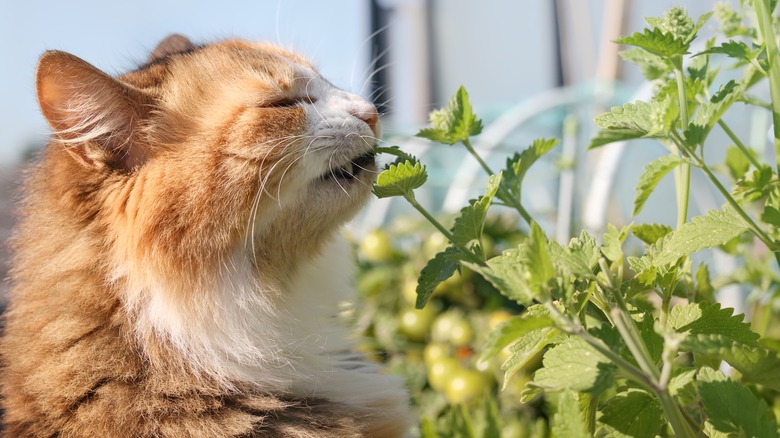The Powerful Herb That Has Hidden Mosquito-Repelling Properties
You may think that catnip is just a treat for your favorite feline, but it can actually be a lifesaver on hot summer nights. Scientifically known as Nepeta cataria, catnip is a member of the mint family long known to enthrall felines and treat some medical issues, but it also has a hidden talent. The essential oils found in catnip have been shown to possess natural insect-repelling properties, making it an effective and non-toxic way to keep mosquitoes at bay.
Catnip contains a compound called nepetalactone, which affects the behavior of mosquitoes and other insects. According to a 2021 study, Nepetalactone has been found to activate an irritant receptor known as TRPA1. When mosquitoes encounter catnip they feel extremely irritated. Consequently, this leads to a swift decrease in mosquito activity in places where catnip is present because they will intentionally avoid those areas. When exposed to catnip, mosquitoes were found to not only avoid it but also stay away from human hands that had catnip on them.
How to use catnip to repel mosquitoes
Using catnip to get rid of mosquitoes in your yard is a simple process. You can use either dried catnip, fresh catnip leaves, or catnip oil. However, fresh catnip has a higher potency than dried. You can plant catnip in your garden to keep mosquitoes away from outdoor areas and possibly prevent them from coming in. Plants can also be set in indoor pots to help repel the insects from the inside out. Make sure to keep the plants well-watered and prune them regularly to encourage growth.
If you only have dried catnip on hand, you can sprinkle dried catnip around entry points, windowsills, and doorways. You can also place a small amount in a mesh bag or a sachet to hang near doorways or place on porches. This can help create a barrier against mosquitoes. It's important to note that catnip loses its potency over time, so it's best to replace it every few weeks to maintain its effectiveness. Finally, if you'd rather use essential oils to repel pests, catnip oil works as good as, if not better than DEET. You can add a few drops to a spray bottle and spray it around the same areas as you would dry catnip. You can also add it to your cleaning products or use it in a diffuser.
Some precautions when using catnip
The safety factor for you and your family is another benefit of using catnip during mosquito season. However, while catnip is a natural and non-toxic way to repel mosquitoes, there are a few precautions to take when using it. Though catnip quickly helps repel mosquitoes, nepetalactone does not typically irritate or affect humans unless you have a specific sensitivity to it. There is a potential for allergies in sensitive individuals. Catnip oil can cause skin irritation in some people. If you have a known sensitivity or think you might, you can do a patch test before using it extensively.
When it comes to your pets, it is a fun pastime for cats since it excites and stimulates them. It's also safe for dogs and believed to provide a calming effect on them. However, you'll want to store it carefully in your home. Though it can be a fun feline treat, it can be harmful to cats if ingested in large quantities. They may experience vomiting and diarrhea. Keep catnip out of your cat's reach, especially if you have a cat who's prone to eating plants.


